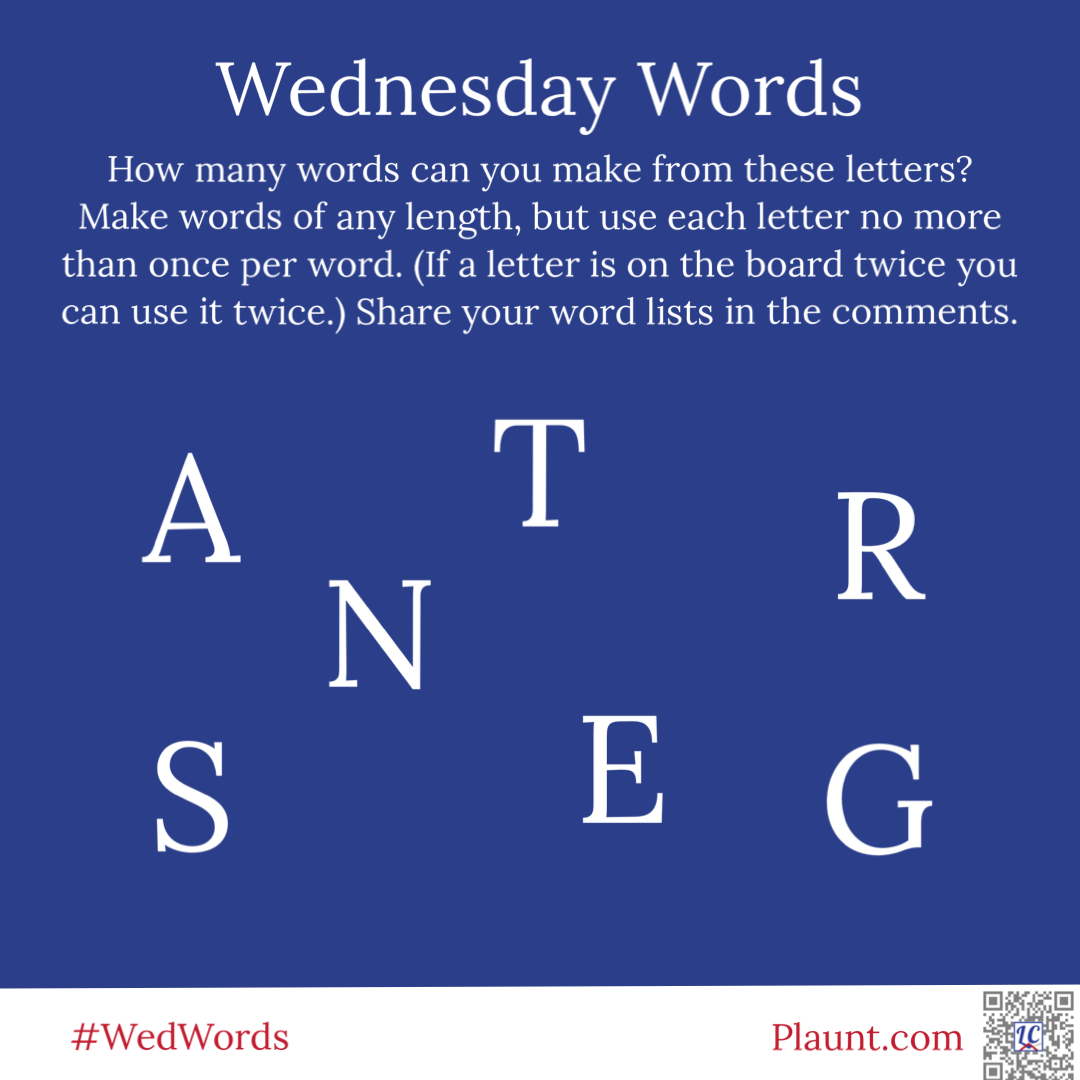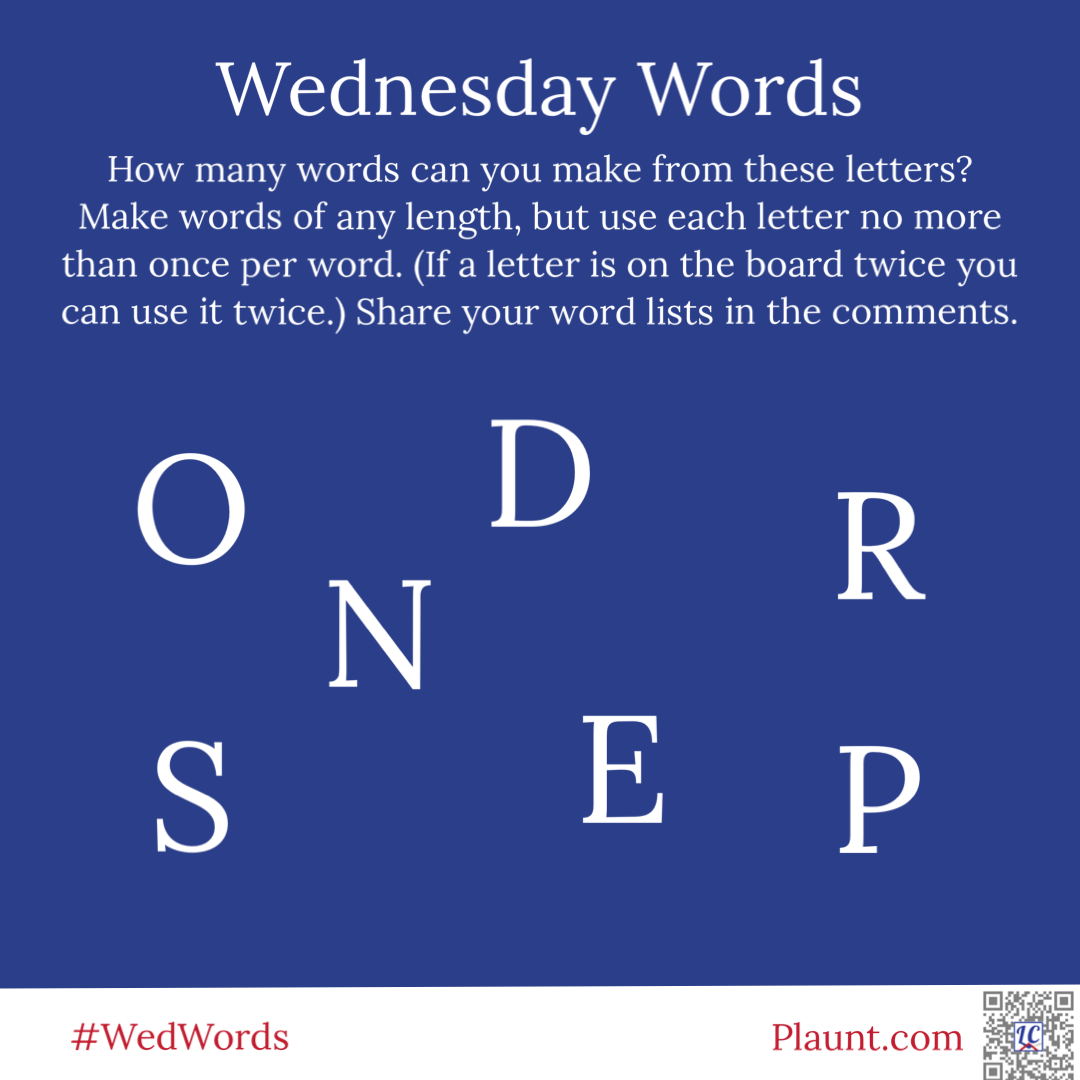In two sentences tell me what you have learned about editing recently.
Monday Muddle: copywrite, copyright
copywrite: (verb, nonstandard) to write copy (generally for business or advertising) (rare back-formation from copywriter) copyright: (noun) the authority to copy creative content (aka intellectual property); (verb) to register the copyright of creative content
We Remember
We pause our regular Language Laughs feature this week to remember those who gave their lives for our freedom.

Thursday Thought #AmandaPatterson
Start your novel at the end of
the backstory you’ve created.
Begin with a breath-taking
inciting moment.
~Amanda Patterson
Wednesday Words
How many words can you make from these letters? Make words of any length, but use each letter no more than once per word. (If a letter is on the board twice you can use it twice.) Share your word lists in the comments.
A T R N S E G

Tuesday Two
In two sentences tell me what you have learned about writing recently.
Monday Muddle: peek, peak
peek: (noun) a quick look or glance; (verb) to take a quick look or glance, often secretively Used in the expression “a sneak peek”. peak: (noun) the summit; pointed top; highest level; (verb) to reach the highest level NOT used in the expression “a sneak peek”. A sneak peak is …
Language Laughs
For a weekly dose of language-based humour, visit my Facebook page at https://facebook.com/lcplauntMEd
Thursday Thought #JaniceLDick
Writing a novel is like
creating a king-sized quilt
in a four-by-four room.
~Janice L. Dick
Wednesday Words
How many words can you make from these letters? Make words of any length, but use each letter no more than once per word. (If a letter is on the board twice you can use it twice.) Share your word lists in the comments.
O D R N S E P

